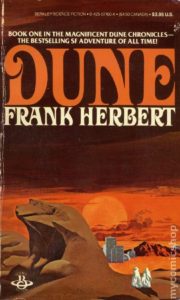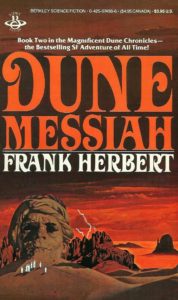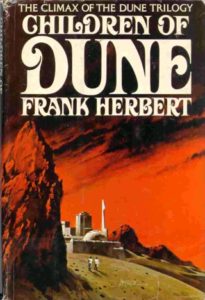 Having books recommended to me is always interesting because of the divergent thought process involved in this. Most people know that I have a degree in English Education, that I have an extensive personal library of around 5,000 volumes, that I consider reading to rank somewhere between breathing and eating, and that I myself am in the midst of churning out a long science fiction novel. If they liked something, I should like it. You read all the time, they say, so you have to read this. Or sometimes I’m told not to read something because the language is archaic and the plot moves like a snail across melted butter.
Having books recommended to me is always interesting because of the divergent thought process involved in this. Most people know that I have a degree in English Education, that I have an extensive personal library of around 5,000 volumes, that I consider reading to rank somewhere between breathing and eating, and that I myself am in the midst of churning out a long science fiction novel. If they liked something, I should like it. You read all the time, they say, so you have to read this. Or sometimes I’m told not to read something because the language is archaic and the plot moves like a snail across melted butter.
Throughout the years, I’ve had a few people mention Dune as a worthy read, with a caveat that it is complex. That had steered me away. The word conjured up in my mind Faulknerian sentences that wouldn’t see a period for three pages; Thomas Mann’s Magic Mountain that was an uphill read best left to small doses, taking a year to finish; and Melville explaining to us the processes behind getting all that blubber off a whale. No. I was through with complex. I needed a break. I let thoughts of Frank Herbert’s Dune drift from my mind.
I had seen bits and pieces of David Lynch’s movie version on TV, the extended version with the voiceover at the beginning (Lynch’s name was removed) explaining where the story stood, the history of the peoples with the Butlerian Jihad and the formation of the Landsraad, CHOAM, and the important families such as Atriedes and Harkonnan. Finally one day I watched it in its entirety. An interesting story, I thought. And it had Captain John Luc Picard in it. Not to mention Sting. Along with these cool voicebox projectors that I’m sure many could find a use for. Sean Young was in it. I kept expecting her to say, “Deckard,” in that drawn out, annoying tone.
Years later, I began to get more interested in reading older science fiction and fantasy. I had finally, in my thirties, read Lord of the Rings, and I loved Zalazny’s Amber Chronicles. Not to mention Saberhagen’s Empire of the East trilogy, which was sort of a science fantasy blend. Not too much unlike what Brooks did with Shannara. So when I saw a commercial for an upcoming Dune miniseries on the Science Fiction Network, I figured I’d watch it.
I already knew the story from the movie, so it would be simple to follow.
 I couldn’t have been more wrong. There were major differences, such as the absence of voiceboxes and the physical traits of the navigators. The miniseries proved to be deeper, richer, more complex (there’s that word again), and I figured it was high time to read the book to really figure out what was going on.
I couldn’t have been more wrong. There were major differences, such as the absence of voiceboxes and the physical traits of the navigators. The miniseries proved to be deeper, richer, more complex (there’s that word again), and I figured it was high time to read the book to really figure out what was going on.
And the people who mentioned Dune to me were correct – it isn’t the easiest story out there to digest, but it certainly isn’t as complex as some of the above mentioned reads from my past. Yet stories with depth and complexity are usually more rewarding. If you want simple, watch Star Wars (I’m not trying to anger Star Wars fans, as it seems they are always arguing with Dune fans about their universes…who could win in a fight, Luke versus Paul, etc. – rather silly). It’s on a level that kids can understand, which is part of the reason for its continued popularity.
But if you want a rich universe full of spice (remember, the spice must flow!), Dune is most certainly it. Now embarking on this trip through fold-space, I was given warning by casual fans who had read at least a few tomes of Herbert’s world. “Don’t bother reading more than the first three,” was the general consensus. I’m so glad I don’t always listen to advice.
So why do some stop after the third book, or even sooner? I’m guessing there are several different reasons behind this. One is that book two, Dune Messiah, is very different from the original, and Children of Dune is still different yet. But at the same time, they really aren’t different. It’s the same teller, the same cast and families, but presented a little differently due to changes that take place. The story moves forward, people die, power changes hands.
 Some people love mysteries that feature the same little old lady solving the same types of crimes, never evolving, despite what she went through. There is a certain comfort gained there. People like to cozy up to them and immerse themselves with the familiar. The concept is nothing new, but some authors have taken a stand and thrown their heroes over the falls, allowing a new tenant to move into 221B Baker Street. If the following is large enough, there will be public outrage. How dare the author kill their friend? Forget about artistic freedom, these fans are addicted (not unlike Holmes having a certain addiction!) to certain protagonists and need a fix.
Some people love mysteries that feature the same little old lady solving the same types of crimes, never evolving, despite what she went through. There is a certain comfort gained there. People like to cozy up to them and immerse themselves with the familiar. The concept is nothing new, but some authors have taken a stand and thrown their heroes over the falls, allowing a new tenant to move into 221B Baker Street. If the following is large enough, there will be public outrage. How dare the author kill their friend? Forget about artistic freedom, these fans are addicted (not unlike Holmes having a certain addiction!) to certain protagonists and need a fix.
So part of the major problem with Dune, not to give too much away to those who have yet to explore the vastness of its universe, is the elimination of its hero. Paul is dead (sort of makes you wonder if Herbert was a Beatles fan). And no one likes a tyrannical God-emperor, especially one that is somewhat reminiscent of James Earle Jones in the first Conan movie. To a casual fan, God-Emperor of Dune would probably be considered too long, too boring, and with no real action. Yet I can’t stress enough the importance of this novel in relation to the Dune Universe. Seeds and paths are planted here, and if you skip this book, you are cheating yourself of what came before it and what follows. Besides, if you ended up putting this one down because it wasn’t moving fast enough, why pick up Heretics and Chapterhouse, arguably the best two books in the series.
What did I just say? Blasphemy! Everyone knows that Paul is the hero of Dune, and that after he’s gone, none of it matters. Well, my fine Freman friends, these statements are usually uttered by those who have never read books five and six.
Heretics of Dune and Chapterhouse: Dune read quite differently than the earlier volumes. There is perhaps less complexity on some levels, but at the same time the stories are full of plots and subplots, plans within plans, if you will. Heretics and Chapterhouse are not simple, but the story-telling methods will be much more familiar to most casual readers, and the excitement level rises much higher than in the previous volumes. And the heroes come out in this one too. If you think Leto II and Paul could give Luke Skywalker a run for his money, Miles Teg would annihilate that poor moisture farmer. So who is this Teg guy? How is he so powerful? Read the novels, and keep in mind that quitting on this series is the little death that brings total obliteration.
Views: 223
Leave a Reply